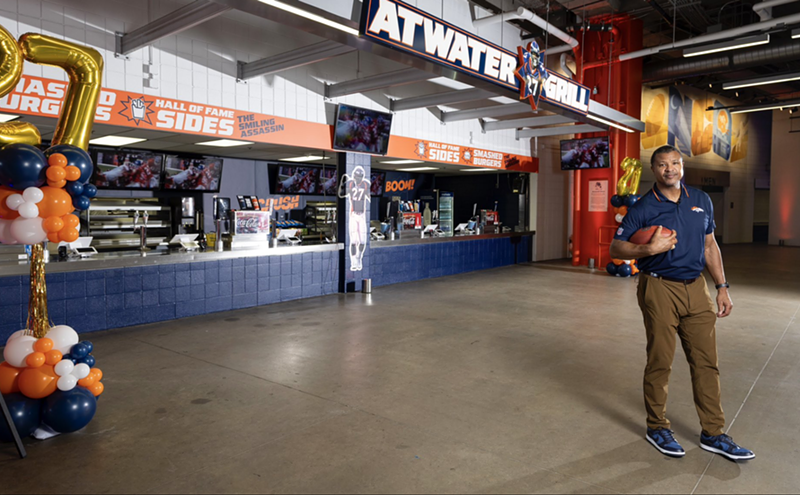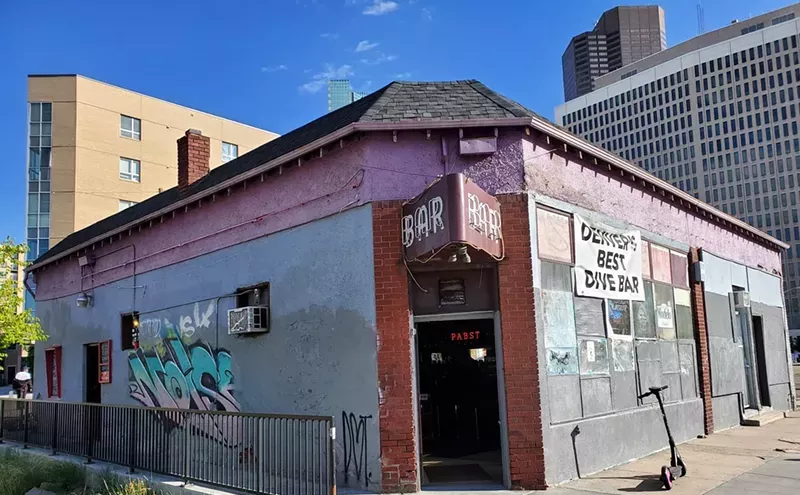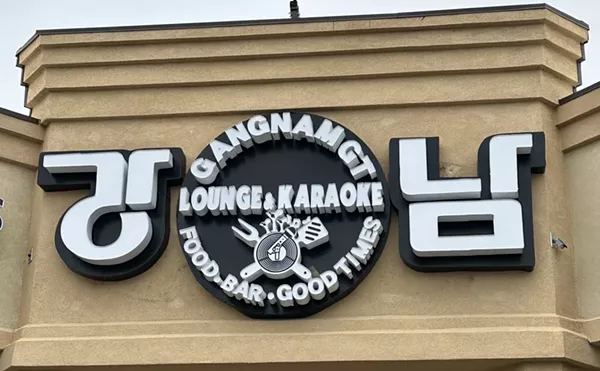How many times have you used a public restroom designated for the opposite gender? Perhaps the toilet in one of the bathrooms was out of order at the neighborhood pub, or the line for one bathroom was much longer than the other.
Although there's been much debate (and, consequently, policies) around the right for transgender individuals to use the bathroom matching the gender with which they identify, the legality around crossing gender lines is murkier.
Last month, a cisgender woman was 86'd from a metro Denver bar for using a single-stall men's restroom. She says she'd waited for the women's restroom for five to ten minutes, watching several men use the men's bathroom during that time. Eventually, she decided to go into the men's room, asking her male friend to keep watch outside. When she emerged, she and her friends were informed that they were being kicked out of the bar because she'd used the men's restroom, a move that was against the bar's policy. In fact, she says, the bar staff her that it's illegal in Colorado to use the opposite-gender restroom.
So, what gives?
First of all, state law is overwhelmingly supportive of transgender individuals using the public restroom that aligns best with the gender with which they identify. Senate Bill 200, passed in 2008, expanded anti-discrimination protections of people using public restrooms regardless of sexual orientation or gender identity. The Colorado Civil Rights Commission (CCRC), a bipartisan advisory board part of the Colorado Civil Rights Division (CCRD) of the Colorado Department of Regulatory Agencies (DORA), issued guidelines asserting that individuals must be allowed to use gender-segregated facilities that best align with the gender with which they identify. On top of Colorado law and code, a 2013 state court case also supported a six-year-old transgender student using the school restroom in Fountain that aligned with her gender identity. The message is clear: Preventing genderqueer individuals from their preferred bathroom is discrimination.
But the question remains: What if you want to use a restroom designated for the opposite gender?
There are Colorado state laws regarding public restroom use, and then there are local laws. In Denver, city law actually requires all public single-stall restrooms to be unisex, per an ordinance enacted in 2016 requiring all businesses to have gender-neutral signage for single-occupant bathrooms — not only to support genderqueer folks, but to make restrooms more convenient for everyone, from parents with children of the opposite gender to people tired of waiting in a line when the other restroom is open. However, laws in other cities vary drastically, and many cities and towns simply adhere to state law.
According to a DORA spokesperson in a statement to Westword: "The Colorado Anti-Discrimination Act states that it is not a discriminatory practice 'to restrict admission to a place of public accommodation to individuals of one sex if such restriction has a bona fide relationship to the goods, services, facilities, privileges, advantages, or accommodations of such place of public accommodation.' C.R.S. Section 24-34-601(3). Colorado Civil Rights Commission Rules and Regulations *3 CCR 708-1) Rule 81.9 states that 'nothing in the Act (Colorado Anti-Discrimination Act), prohibits segregation of facilities on the basis of gender. All covered entities shall allow individuals the use of gender-segregated facilities that are consistent with their gender identity. Gender-segregated facilities include, but are not limited to restrooms, locker rooms, dressing rooms, and dormitories. In gender-segregated facilities where undressing in the presence of others occurs, covered entities shall make reasonable accommodations to allow access consistent with an individual's gender identity.'"
In other words, unless a Colorado municipality states otherwise, bars as well as restaurants, stores, schools and other businesses are all legally allowed to prohibit you from using the opposite-gender restroom and can ask you to leave if you don't comply.
But is it illegal to use that restroom, as the bar staff suggested in this instance? What seems like the simplest question to answer is actually the most complicated. According to the DORA spokesperson, CCRD is "unable to answer that question, as it would require an interpretation of the statute that would constitute legal advice."
In Denver, at least, single-stall restrooms are not segregated; nor are some multi-stall restrooms. At gay nightlife hot spots such as Tracks and Blush & Blu, for instance, multi-stall restrooms can be used by anyone, regardless of gender.
Still, the experience of the woman who was shown the door serves as a cautionary tale. No matter how often you frequent an establishment or how easygoing you think the management might be, it's not safe to assume. If you need to use the restroom designated for the opposite gender, ask management first — or else risk being 86'd.

Audio By Carbonatix
[
{
"name": "GPT - Billboard - Slot Inline - Content - Labeled - No Desktop",
"component": "23668565",
"insertPoint": "2",
"requiredCountToDisplay": "2"
},{
"name": "STN Player - Float - Mobile Only ",
"component": "23853568",
"insertPoint": "2",
"requiredCountToDisplay": "2"
},{
"name": "Editor Picks",
"component": "17242653",
"insertPoint": "4",
"requiredCountToDisplay": "1"
},{
"name": "Inline Links",
"component": "18838239",
"insertPoint": "8th",
"startingPoint": 8,
"requiredCountToDisplay": "7",
"maxInsertions": 25
},{
"name": "GPT - 2x Rectangles Desktop, Tower on Mobile - Labeled",
"component": "24956856",
"insertPoint": "8th",
"startingPoint": 8,
"requiredCountToDisplay": "7",
"maxInsertions": 25
},{
"name": "Inline Links",
"component": "18838239",
"insertPoint": "8th",
"startingPoint": 12,
"requiredCountToDisplay": "11",
"maxInsertions": 25
},{
"name": "GPT - Leaderboard to Tower - Slot Auto-select - Labeled",
"component": "17676724",
"insertPoint": "8th",
"startingPoint": 12,
"requiredCountToDisplay": "11",
"maxInsertions": 25
}
]












